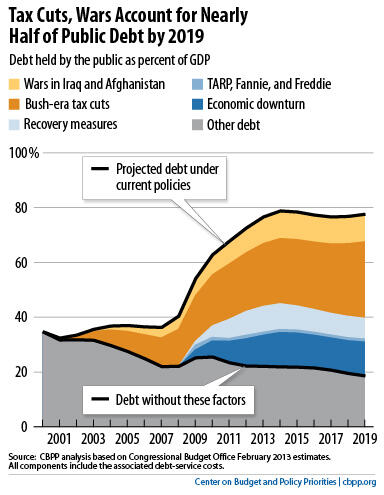BEYOND THE NUMBERS
The House narrowly approved a “debt prioritization” measure today that would — in case of a prolonged standoff over raising the debt ceiling — direct the Treasury to pay bondholders and Social Security recipients first.
The bill says nothing about the millions of other people and businesses who count on timely federal payments — including veterans, doctors and hospitals who treat Medicare patients, soldiers, state and local governments, private contractors, and recipients of unemployment, SNAP, and Supplemental Security Income benefits.

Lawmakers shouldn’t fool themselves: simply putting bondholders at the front of the queue won’t avert financial chaos or soothe creditors. One rating agency explicitly warned in January that honoring interest and principal payments but delaying payment on other obligations would trigger a review and hence a possible downgrade.
We’ve said before that lawmakers shouldn’t play politics with the debt ceiling. The United States is virtually alone among advanced countries in setting a debt ceiling independently of the decisions that drive higher debt in the first place — the decisions about how much to spend and how much to collect in revenues. Among other problems, that disconnect enables lawmakers to support tax cuts and wars that necessitate borrowing (see graph), then oppose raising the debt limit to let the government pay the resulting bills.
The most sensible approach would be to abolish the debt limit altogether, which serves no useful purpose and provides opportunities for political mischief while putting the nation’s financial standing at risk. The Financial Times and the Economist agree, and economists surveyed by the University of Chicago overwhelmingly agreed that the debt ceiling “creates unneeded uncertainty and can potentially lead to worse fiscal outcomes.”
At the very least, lawmakers should raise the debt limit in a timely way and for an extended period of time so that the government does not risk defaulting on any of its obligations.
